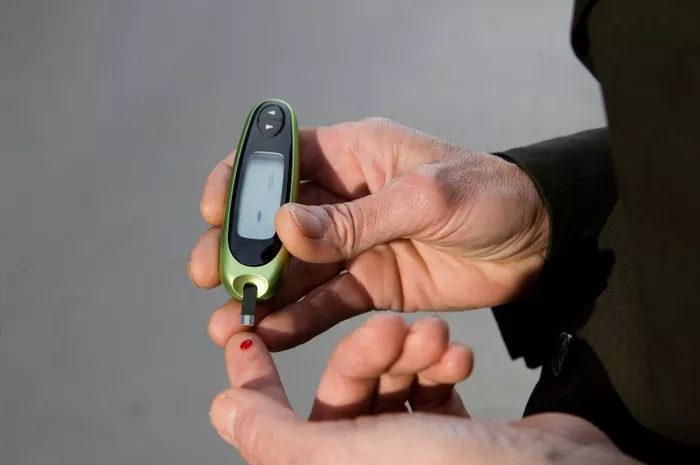For individuals living with diabetes, managing blood sugar levels is a crucial aspect of health and wellness. One of the most important elements in controlling blood glucose levels is understanding carbohydrate intake. Carbohydrates are a macronutrient that play a pivotal role in energy supply, but for people with diabetes, they also significantly affect blood sugar levels. However, not all carbs are created equal. This article aims to provide a comprehensive guide on what carbohydrates diabetics should eat to maintain balanced blood sugar levels while promoting overall health.
Understanding Carbohydrates and Their Role in Diabetes
Carbohydrates are the body’s primary source of energy. When consumed, they are broken down into glucose, which is absorbed into the bloodstream. The hormone insulin helps cells take in glucose to use as energy. For individuals with diabetes, either the body doesn’t produce enough insulin (type 1 diabetes) or the cells become resistant to insulin (type 2 diabetes), leading to high blood sugar levels.
Carbohydrates are typically classified into three main types: simple carbohydrates, complex carbohydrates, and fiber. Each type affects blood sugar differently, which is why understanding the distinctions between them is essential for managing diabetes.
Simple Carbohydrates: Handle with Care
Simple carbohydrates, also known as sugars, consist of one or two sugar molecules. They are quickly digested and absorbed, leading to a rapid increase in blood sugar levels. Examples of simple carbohydrates include glucose, fructose (found in fruits), sucrose (table sugar), and lactose (found in dairy).
For diabetics, consuming large amounts of simple carbohydrates, especially refined sugars, can result in sharp spikes in blood glucose. Foods high in simple carbs, such as candy, sugary drinks, and baked goods made from white flour, should be limited or avoided altogether.
However, not all simple carbs are harmful. Some are found in nutrient-rich foods like fruits and dairy, which also provide essential vitamins, minerals, and other nutrients that support overall health. The key is choosing simple carbohydrates that come from whole food sources and balancing them with other food groups to prevent rapid blood sugar spikes.
Complex Carbohydrates: The Better Choice
Complex carbohydrates are composed of longer chains of sugar molecules. Because of their complexity, they take longer to break down and digest, which results in a more gradual release of glucose into the bloodstream. This helps prevent the rapid spikes in blood sugar that are often associated with simple carbs.
Foods rich in complex carbohydrates include whole grains, legumes, vegetables, and certain fruits. These foods are often nutrient-dense, meaning they provide essential vitamins, minerals, and fiber. Including complex carbohydrates in a diabetic diet can help regulate blood sugar levels, promote satiety, and provide sustained energy.
Some great options for diabetics include:
Whole Grains: Whole grains such as oats, brown rice, quinoa, and barley are excellent sources of complex carbohydrates. These grains contain fiber, which slows digestion and the release of glucose into the bloodstream.
Legumes: Beans, lentils, chickpeas, and peas are rich in complex carbohydrates and provide a good source of plant-based protein and fiber.
Vegetables: Non-starchy vegetables like spinach, broccoli, and cauliflower are low in carbohydrates but high in vitamins, minerals, and fiber. Starchy vegetables like sweet potatoes and squash are higher in carbs but still provide fiber and essential nutrients.
Fiber: A Diabetic’s Best Friend
Fiber is a type of carbohydrate that the body cannot digest. It passes through the digestive system largely intact, which means it has little to no effect on blood sugar levels. Foods high in fiber are essential for a diabetic diet as they help regulate blood glucose levels, improve digestion, and promote heart health.
There are two types of fiber: soluble and insoluble. Soluble fiber dissolves in water to form a gel-like substance, which can help lower blood sugar levels by slowing the absorption of glucose. Insoluble fiber does not dissolve in water but helps with digestion and can prevent constipation.
Foods high in fiber include:
Vegetables: Dark leafy greens, carrots, Brussels sprouts, and artichokes are excellent sources of fiber.
Fruits: Berries, apples (with the skin on), oranges, and pears are rich in fiber. However, diabetics should consume fruit in moderation due to its natural sugar content.
Whole Grains: As mentioned earlier, whole grains like oats, quinoa, and brown rice are good sources of fiber.
Legumes: Beans, lentils, and chickpeas are fiber powerhouses.
Glycemic Index and Its Importance in Carb Selection
The glycemic index (GI) is a ranking system that measures how quickly carbohydrates in foods raise blood sugar levels. Foods are ranked on a scale from 0 to 100, with pure glucose having a GI of 100. Low-GI foods (55 or below) cause a slower, more gradual rise in blood sugar, while high-GI foods (70 or above) cause a quicker spike.
For diabetics, choosing low-GI foods is crucial for managing blood sugar levels. Low-GI foods include:
Legumes: Lentils, kidney beans, and chickpeas have a low glycemic index and are excellent for blood sugar management.
Whole Grains: Barley, steel-cut oats, and quinoa are low-GI grains that provide a steady source of energy.
Vegetables: Most non-starchy vegetables like spinach, broccoli, and zucchini have a very low glycemic index.
Fruits: Berries, apples, and pears have a lower GI compared to tropical fruits like mangoes and pineapples.
Carbohydrate Counting and Portion Control
Carbohydrate counting is a common strategy used by diabetics to manage their blood sugar levels. This involves tracking the number of grams of carbohydrates consumed in each meal and adjusting insulin doses accordingly (for those using insulin therapy). It’s important to balance carbohydrate intake with physical activity and medications to prevent blood sugar spikes and dips.
Portion control also plays a key role in managing carbohydrate intake. Even healthy carbs can lead to blood sugar spikes if consumed in large amounts. Diabetics should aim to keep portion sizes in check, especially when it comes to higher-carb foods like grains and starchy vegetables.
What About Carbohydrate Quality?
While managing the quantity of carbohydrates is essential, the quality of carbohydrates is equally important. Choosing nutrient-dense, whole foods over processed foods can have a profound impact on health and blood sugar management. For example, a slice of whole-grain bread offers more nutrients and a lower glycemic index than white bread, even though both contain carbohydrates.
The emphasis should be on selecting carbs that offer more than just energy. Nutrient-dense carbohydrates like whole grains, legumes, and vegetables provide fiber, vitamins, minerals, and antioxidants that contribute to overall health, including heart health, weight management, and reduced inflammation.
Carbs to Avoid
While some carbohydrates are beneficial, there are certain types that diabetics should limit or avoid altogether. These include:
Sugary Beverages: Sodas, fruit juices, and energy drinks contain large amounts of sugar and can lead to rapid spikes in blood sugar levels.
Refined Grains: White bread, white rice, and refined pasta lack fiber and nutrients, leading to faster digestion and a quicker rise in blood sugar.
Sweets and Desserts: Foods high in added sugars, like cakes, cookies, and candies, can significantly impact blood glucose levels and provide little nutritional value.
Processed Snack Foods: Chips, crackers, and other packaged snacks often contain refined carbohydrates and added sugars.
See also: Is a Diabetic Diet Good for Everyone?
Conclusion: Striking a Healthy Balance
For diabetics, eating carbohydrates is about striking a balance between enjoying a variety of foods and managing blood sugar levels. The best approach is to focus on nutrient-dense, whole food sources of carbohydrates, such as whole grains, legumes, vegetables, and fruits, while avoiding processed and sugary foods that can cause blood sugar spikes.
By understanding the types of carbohydrates and their effects on blood sugar, diabetics can make informed choices that support their health goals. Carbohydrate counting, portion control, and choosing low-glycemic-index foods are essential tools in maintaining stable blood sugar levels while still enjoying a diverse and satisfying diet.
Diabetes management is an individualized process, and working with a healthcare provider or dietitian can help tailor carbohydrate choices to fit personal needs and lifestyle. However, with the right strategies in place, it is possible to enjoy carbohydrates as part of a balanced diet that supports both blood sugar control and overall well-being.
Related topics:
Are Sweet Potatoes Okay for Diabetics to Eat?

























